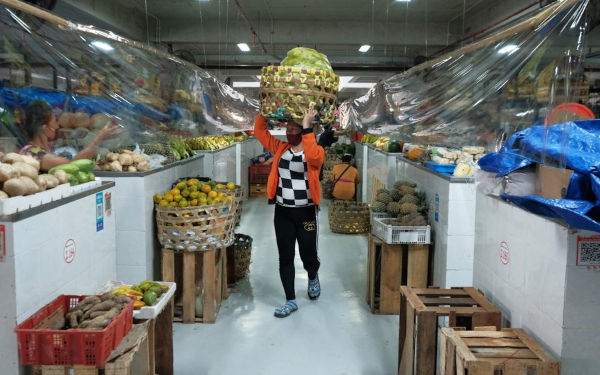In the light of the International Women’s Day week 2021, it is once again increasingly clear that tangible breakthroughs are now met with new yet familiar changes. With more women staying at home during the pandemic, they are facing layered burdens such as juggling paid work and caregiving, while facing the threat of job loss and the vulnerability to domestic violence due to increased tension inside households.
This notion was highlighted during the international dialogue organised by the United Nations Economic and Social Commission for Asia and the Pacific (ESCAP) and the UN Women Regional Office for Asia and the Pacific (ROAP), particularly through the launch of their joint report titled “The Long Road to Equality”. It was also an occasion to mark the International Women’s Day (IWD) 2021.
This synthesis report revealed that aspects such as representation of women in decision-making positions within politics are irrefutable, and overall empowerment of women has increased over the last 25 years. However, the COVID-19 pandemic is bringing unprecedented challenges, potentially pushing back the hard-won gains with gendered effects that are in large part attributable to long-existing social and economic inequalities.
Therefore, it is now more important than ever to include the efforts of empowering women and girls into the planning, implementation, to monitoring and also evaluation of government policies and programmes.
UCLG ASPAC, being the largest body of local governments across Asia and the Pacific, strongly recognising the values of gender equality, when implemented effectively through good governance could impact the welfare of women and girls right down to the smallest scale of communities.
UCLG ASPAC also as far recognising that women are also on the forefront of COVID-19 response and recovery efforts and is acting on the momentum of encouraging transformational policy-making decisions.
It was reflected in June last year where in collaboration with partners, UCLG ASPAC organised a Web-share in addressing how gender equality and women’s empowerment can be instrumental to a more inclusive and effective design of transition to the adaptive era, and to learn from ongoing initiatives to support UCLG ASPAC members’ COVID-19 response and recovery strategies.
Cao Yanping, Secretary General of Xi’an People’s Friendship Association with Foreign Countries, conveyed a Chinese saying, “Women shoulder up half of the sky.”,indicating that the participation and voices of women are integral part of a nation’s development, which are of greater focus in the context of the COVID-19 pandemic. “The pandemic threatens our lives and disrupted social orders, so women’s well-being and rights should be paid more attention. For example, maternal leave is 150 days at most, which enhances help for pregnant and lactating mothers, particularly before returning to work.”, she said.
Enabling environments are therefore critical, to which the city of Catbalogan in the Philippines shared as part of their best practices. Lots of progress have been made, including the 50% representation of women in their council, as well as the active participation of COVID-19 response within the city as expressed by Ms. Stephany Uy-Tan, City Councillor of Catbalogan. “This includes monitoring of checkpoints, survey of beneficiaries to national programs, distribution of food assistance and health kits.” she said.
Furthermore, the Webshare also re-emphasized how critical it is to be pro-gender equality when it comes to good governance and despite the many challenges, awareness is still an important first step, as implied by Ms. Khara Jabola-Carolus, Executive Director of the Hawaiʻi State Commission on the Status of Women. “A feminist approach could contribute to the building back better concept. My colleagues in government, of how they are radicalising. I hear bureaucrats being critical of capitalism, of how the economy is structured, of how women are the bottom of the iceberg and how we’re not paying attention to that, the support that holds up our entire economy.” she said. Once achieving that awareness, then concrete policies could be implemented, for example, around the concept of a universal basic income as she conveyed further.
This was agreed by Dr. Bernadia Irawati Tjandradewi as Secretary General of UCLG ASPAC, particularly because local governments play a huge role in creating effective enabling environments to support gender equality. This comes in many ways, such as through equal representation of women in government which can aid in the development of inclusive and empowering policies.
“We should increase the quota for women-elected local government leaders in the Asia-Pacific because we have to make decisive steps to protect women and girls everywhere, such as from domestic violence. I am glad that some cities have already established support systems such as providing a 24/7 hotline. We as local governments also can’t work alone, we need to have a co-creation to engage various stakeholders, because it is especially important as well to note that women should be part of the recovery post-COVID.” she said.
#ChoosetoChallenge
Source :
https://www.unescap.org/news/achieving-equal-future-women-asia-and-pacific-post-covid-19-era#











